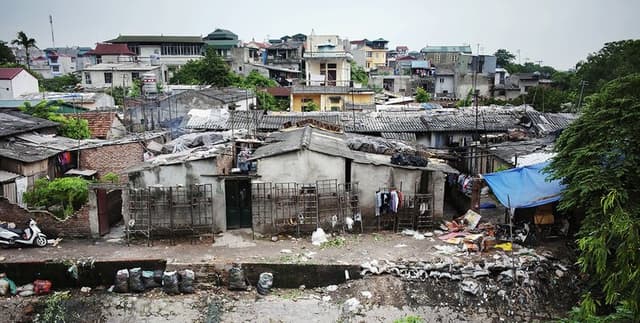International Extreme Poverty Data
Data Science and Analytics
Tags and Keywords
Trusted By




"No reviews yet"
Free
About
This dataset illuminates the global progress and persistent challenges concerning extreme poverty. While the world has made significant strides over the past two centuries, demonstrating that widespread poverty is not inevitable, it remains a reality for one in ten people globally. The data highlights the effectiveness of the 'international poverty line' in drawing attention to the world's most vulnerable populations. A critical aspect addressed is the stagnation of economic growth in the poorest countries, a major contemporary issue preventing millions from escaping extreme poverty. This dataset is crucial for understanding historical trends and current disparities in global poverty reduction efforts.
Columns
- Entity: Represents the geographical entity (e.g., country or region) for which the poverty data is reported. It contains 183 unique values and is fully valid.
- Code: Provides a unique country code for each entity. There are 168 unique codes, with approximately 8% of entries being null.
- Year: Indicates the specific year the poverty data was recorded. The data spans from 1981 to 2019 and is fully valid.
- $30.00 per day - share of population below poverty line: Shows the percentage of the population living on less than $30 per day, serving as a measure of poverty. Values range from 0 to 100, and this column is fully valid.
Distribution
The dataset is typically provided as a data file, often in CSV format. The specific sample file for this dataset is
poverty-share-on-less-than-30-per-day.csv, with a size of 204.93 kB. It comprises 4 distinct columns and contains 6942 records.Usage
This dataset is ideally suited for:
- Comparing poverty levels: Analysing and comparing the percentage of people living in extreme poverty across different countries and over various years.
- Economic analysis: Studying the relationship between economic growth and poverty reduction.
- Policy formulation: Informing and evaluating policies aimed at poverty alleviation and sustainable development.
- Research: Conducting academic research on global inequality, development economics, and social progress.
- Identifying challenges: Pinpointing countries or regions where economic stagnation hinders poverty reduction.
Coverage
The dataset covers 183 unique entities, primarily countries, providing a broad global perspective. The temporal scope ranges from 1981 to 2019, allowing for analysis of long-term trends in poverty. It focuses on the share of the population below a specific poverty line, particularly those living on less than $30 per day, offering insights into various levels of economic deprivation worldwide.
License
CC0: Public Domain
Who Can Use It
This dataset is valuable for a wide array of users, including:
- Economists and Researchers: For detailed studies on global economic disparities and development.
- Policy Makers: To develop and assess national and international strategies for poverty eradication.
- Non-governmental Organisations (NGOs): For evidence-based advocacy and programme design related to poverty alleviation.
- Students and Academics: As a resource for educational projects and scholarly work on social issues.
- Journalists: To report on global development trends and challenges.
Dataset Name Suggestions
- Global Poverty Trends 1981-2019
- International Extreme Poverty Data
- Poverty Share by Country & Year
- World Poverty Progress & Challenges
- Economic Stagnation & Poverty Rates
Attributes
Original Data Source: International Extreme Poverty Data
Loading...
